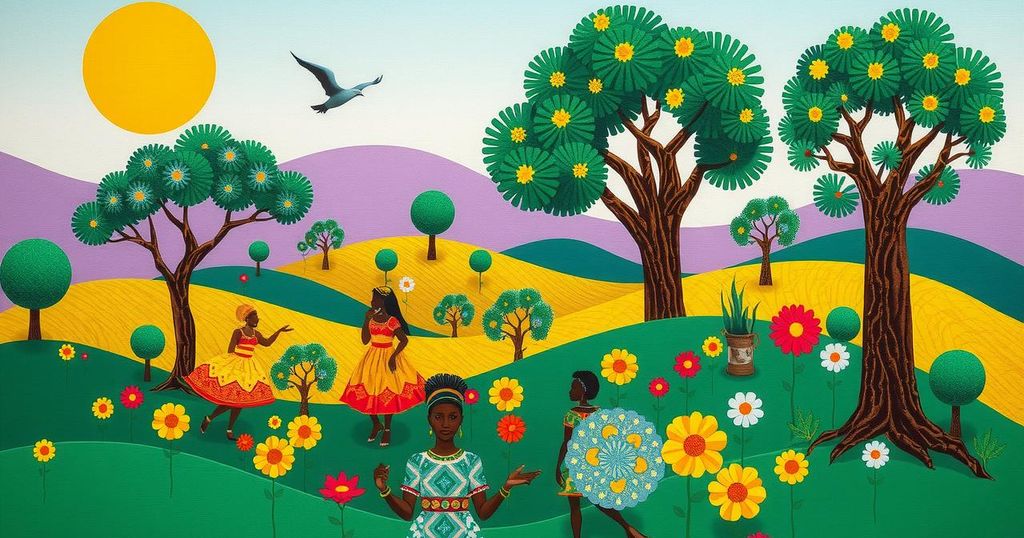Tanzania’s Commitment to Gender Equality: Insights from President Samia Hassan
Thirty years after the Beijing Conference, President Samia Suluhu Hassan reaffirmed Tanzania’s commitment to gender equality during International Women’s Day celebrations. She emphasized the importance of nurturing youth who uphold Tanzanian values, promoting women’s rights including land ownership, and advancing universal healthcare. Dr. Dorothy Gwajima outlined initiatives aimed at empowering women economically. The significant role of community support and legal aid for women was also highlighted.
On March 8, 2025, during the national commemoration of International Women’s Day at Sheikh Amri Abeid Stadium in Arusha, President Samia Suluhu Hassan underscored the significance of gender equality thirty years after the Beijing Conference. She stated that advancing women’s rights now requires a focus on nurturing youth who embody Tanzanian values and mutual respect. President Hassan emphasized that fostering a generation rooted in equality necessitates a collective approach from all Tanzanians.
The President expressed that meaningful dialogues should be encouraged among youth, rather than mere vocal expressions. “Thirty years after the Beijing Conference, Tanzania has made great strides in uplifting women, including increasing their representation in government and the private sector,” she noted. The discourse surrounding gender equality is crucial, particularly in land ownership and healthcare, with President Hassan advocating for universal health insurance to ensure accessibility for all citizens.
In addition to gender equality, President Hassan raised concerns regarding the erosion of moral values among the youth. She highlighted the importance of cultivating self-reliance in children and fostering socially responsible values devoid of discrimination. The President posited that gender equality should be regarded as a constitutional issue rather than an individual concern, emphasizing, “Our Constitution states that all humans are born free and equal. Granting someone their rights is not about charity or favouritism. We aim to build an inclusive Tanzania.”
Dr. Dorothy Gwajima, Minister for Community Development, Gender, and Special Groups, announced this year’s theme of Women and Girls 2025: Strengthening Rights, Equality, and Economic Empowerment, focusing on women’s economic advancement. The series of events commenced on March 1, 2025, included forums across seven regions discussing significant issues affecting various groups of women and addressing their empowerment through community-specific economic opportunities.
Dr. Gwajima highlighted the establishment of platforms for women to showcase their handmade products and acquire insights from successful women, thus motivating them towards entrepreneurial success. Additionally, she shared the positive impact of the Samia Legal Aid campaign, which has provided legal support to women victims of abuse, stating, “Many individuals have found relief, with their grievances addressed.”
Moreover, the local response to the celebrations was addressed by Arusha Regional Commissioner Paul Makonda, who noted the participation of over 400 booths focused on providing educational resources, dispute resolution, and trade services. He appealed for the President’s support in legally assisting citizens with unresolved cases, emphasizing the importance of legal knowledge and representation, ensuring that all citizens seek justice without barriers.
In conclusion, President Samia Suluhu Hassan’s address during International Women’s Day highlights the continued endeavor towards gender equality in Tanzania. Her emphasis on nurturing the youth, advocating land ownership rights for women, and promoting healthcare accessibility underscores her commitment to holistic societal development. The collaborative initiatives introduced by the government, including economic empowerment forums, demonstrate a concerted effort to foster an inclusive environment for future generations. It is imperative for every Tanzanian to partake in this crucial journey towards achieving gender equality and social responsibility.
Original Source: www.ghanaweb.com




Post Comment